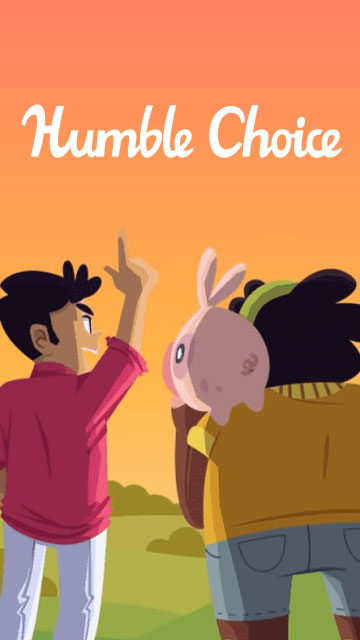To be honest, I haven’t really thought much about the Philippine indie game development scene until only a year ago (it was around June 4, 2020 when I first drafted this article). At the back of my head, I knew there were Filipino game developers because of the market on job listings for these types of careers, but I guess I was just to focused on the more popular indie titles that I had lost sight and overlooked the Filipino “indie gem” games, or Filipino indie /g/ems (where the /g/ is pronounced as a hard “g”), as I call it.
Kapag hindi mo nakita, makikita mo!
As kids or teenagers (or even adults), we would usually hear this phrase from our elders or even our partners. It’s a bit difficult to translate, but in a sense, it’s kind of like, “If you can’t find it, you will experience my wrath!”, although, for this topic, it’s more literal.
Last year, as I was doing my daily routine check of free games via IsThereAnyDeal, I accidentally came across a demo of a Filipino-made game on Itch.io by developer chikon club, called Putahe ng Ina Mo: Sinigang Edition. It was a well-made, 3D cooking simulation game, from the likes of Cooking Mama, with a unique twist on gameplay mechanics: the ingredients are already prepared neatly in your work area and that you only need to add the ingredients accordingly to make the recipe.
Another instance was when I was browsing my Steam Discovery Queue when I came across a game, which was obviously Filipino-made from its title alone: BAYANI – Fighting Game by developer Ranida Games. The game is an Early-Access 1v1 fighting game from the likes of Street Fighter, where the character roster is heavily inspired by Philippine historical figures.
Around the same time, or maybe just a few days of initially drafting this article, I bought the Bundle for Racial Justice and Equality on Itch.io and was surprised to see a few Filipino indie (tabletop) /g/ems, as well.
From here on, I started researching for more Filipino game developers and was inspired to write this article.
The pioneer of the Philippine gaming industry
The very first Filipino game development company I remember was Anino Games. It was founded in 2001 and I still remember how I tried sending my CV/resume to them back then, as I had always been personally interested in the game development industry myself, whether be it a game developer or a concept artist. As a kid, I had always loved playing video games and I thought that working in a game development company would actually satiate this thirst for working for something that you love doing.
The game that I remember that they have developed back then was Anito: Defend A Land Enraged (2003), a third-person, single-player RPG heavily inspired by the Diablo game and Filipino mythology and folklore.
Philippine indie game developer highlights
Keybol Games, an indie game developer based in Pampanga that initially started with browser games in 2009. With a multitude of games in their portfolio, Jack Axe being their latest game slated to be released soon on Steam.
Nico Tuason, an indie game developer that started developing games in 2010 as a passion project. A remarkable journey for a one-man team. His latest game Lithium City, an isometric, cyberpunk shooter, is currently on Steam.
Founded in 2015, Ranida Games is a Philippine indie game development company based in San Pedro, Laguna. The first time I came across this game developer was when I have randomly come across their game BAYANI – Fighting Game in the Steam Discovery Queue. Aside from this and several other games on their website, they also now have another game on Steam called PBA Basketball Slam: Arcade Edition.
Another Philippine indie game development company I had only accidentally discovered through Steam was Squeaky Wheel, with Political Animals (2016) as their first game. I have already seen and eyed Political Animals in the past because of its cute artwork and seemingly fun theme and gameplay, but I wasn’t really aware that the developer was in fact Philippine-based.
Founded in 2020, Chikon Club started out, in the heat of the pandemic, as a three-woman team of indie game developers. Now a collective and a company, Chikon Club is slowly growing and is looking to be one of the game development companies to watch out for, with their game on Itch.io, Putahe ng Ina Mo: Sinigang Edition, and upcoming (reworked version) game on Xbox and Steam, Soup Pot to be released this 2021.
Also from one of the developers of Soup Pot, Chryse, Shots Fired is a pixel-graphic, point-and-click, assassination game.
(Very) honorable mentions
Don’t get me wrong, these are some of the Philippine game studios that I think are more established now.
Secret 6, LLC is a veteran game development company based in San Francisco, the Philippines and Madrid. It was founded in San Francisco, California on 2005, with the 3D studio being established in the Philippines. In 2016, they revealed a 3v3 team-based first-person shooter game called Project Xandata.
Kooapps, a game development company founded in 2008 that focuses on mobile games, known for its titles like Pictoword, Pocket Family, and Word Beach.
ThinkBIT Solutions, a software firm providing design and development services both for mobile and web platforms, including mobile and web app development, as well as mobile game development, among many other services.
More Filipino hidden /g/ems
A quick keyword search on Steam and on Itch will also reveal several games with Filipino themes, which, for some, I am not particularly sure whether they are indeed developed by Filipino indie game developers as they only have unknown to little history or background. (I will try to write about these hidden /g/ems more in a separate blog next time!)
Takeaways
I wasn’t actually surprised to see a lot of Filipino game developers nowadays, but I was just disappointed how it’s not so often that we see them in the media (that or I haven’t been active reading news articles) or that the game development industry in the Philippines is not as big as it is in other countries. But it’s good nowadays that schools actually cater to this industry. Back in my time, there weren’t any options that I had been aware of.
It’s also good that there are a lot of online platforms nowadays that allow indie developers to make and publish games at, like Itch.io, Steam, iTunes or Google Play. Even with just a small capital and great dedication, hard work and passion, one could easily start developing games. I guess my role, as a casual gamer and blogger, would be to show my support to my fellow Filipinos by playing their games, or if not, by spreading the word, hoping there’s somebody else out there that fits the games’ target audiences.

